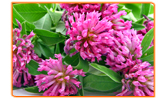5 Myths About Herbal Remedies for Menopause Symptoms
 During menopause, you may experience a range of uncomfortable symptoms. They range from hot flashes, headaches and fatigue to depression and anxiety, via vaginal dryness and a loss of libido. The symptoms you may experience during menopause are a result of the fluctuating levels of hormones in your body, particularly estrogen.
During menopause, you may experience a range of uncomfortable symptoms. They range from hot flashes, headaches and fatigue to depression and anxiety, via vaginal dryness and a loss of libido. The symptoms you may experience during menopause are a result of the fluctuating levels of hormones in your body, particularly estrogen.
However, there are many natural ways to combat such unpleasant symptoms, such as using herbal supplements. Herbal remedies that are particularly effective in combating menopausal symptoms are:
� Black Cohosh
� Dong Quai
� Ginseng
� Soy
� Red Clover
As herbal supplements are becoming increasingly popular, they are increasingly discussed. As a result, there are a lot of myths surrounding herbal remedies. Read on to learn 5 myths about herbal remedies for menopause symptoms, and the truth behind the myth.
Herbal Remedies Do Not Have A Hormonal Effect
Herbal remedies do not just combat menopausal symptoms because they soothe the mind and energize the body. There are a number of herbal remedies that do, in fact, have a hormone-like effect. All of the herbs mentioned above contain a natural substance called phytoestrogen. Phytestrogen is a compound found within the plant, which has estrogen-like properties. When ingested, it mimics the role of estrogen in the body. This helps balance out fluctuating hormone levels, and eases menopausal symptoms.
You Can�t Overdose on Herbal Remedies
Be careful; just because these herbs aren�t prescribed, does not mean there is no upper limit. In large quantities, soy can have an anti-nutritional effect, and large doses of black cohosh can cause dizziness, headaches and nausea. Always check the guidelines on the packaging, and do no exceed. If in doubt about the quantity of herbal supplements you are taking, or if you experience unexpected side effects, consult your doctor.
Treating Menopause with Herbs is the Only Option
 There are numerous ways to treating menopause symptoms, and herbal remedies is only one. Making lifestyle changes, ensuring you are getting regular exercise and making adjustments to your diet, can help combat some menopausal symptoms. Hormone Replacement Therapy is another option, in which hormones are introduced into the body to balance the fluctuating levels of hormones.
There are numerous ways to treating menopause symptoms, and herbal remedies is only one. Making lifestyle changes, ensuring you are getting regular exercise and making adjustments to your diet, can help combat some menopausal symptoms. Hormone Replacement Therapy is another option, in which hormones are introduced into the body to balance the fluctuating levels of hormones.
While herbs can be a natural and effective way to combat the symptoms of menopause, it is important that you find the right remedy for you.
Herbal Supplements Have No Side Effects
This is, again, not true. Phytoestogenic herbs, like the ones we have been discussing can have a hormonal impact following prolonged use. As they mimic the estrogen in the body, over time, the body can start reducing its own estrogen production. It is important to take care when taking herbal remedies to not exceed the recommended dosage, as with prescribed drugs.
All Herbal Remedies Were Used in Chinese Medicine
Black cohosh is native to North America, and Ginseng is grown in North America, Siberia and Korea. But just because it does not have thousands of years of medical history, do not question its validity. It is important to look at up-to-date information about herbal remedies, by looking at modern studies of plants and their curative properties.
It is important to understand and know the truth about any treatment for menopause that you are considering. By doing this, you will be able to take an informed decision about which remedy is right for you. Click on the following link for more information about herbal remedies to treat menopause symptoms.



























